ICE Agents deploying from an armored vehicle in Los
Stephen Miller and Tom Homan are the architects and executors of the Trump Regime’s genocidal plans. Miller is the architect, correctly interpreting the intent of his superiors and formulating policy to accomplish it and to exceed expectations. Homan is the man executing the actions with the complete approval of the same people. Miller is primarily a behind the scenes operator, but regularly frequents the major cable television shows where he openly discusses his genocidal policies, seldom getting emotional or erupting in anger at them. When confronted, Miller enlarges his plans to include critics. Homan is different. He is a brutish thug who enjoys the crimes that his stormtroopers are committing, but he has no problem getting angry on camera, lashing out against critics, and making threats.
SD Lieutenant Colonel Adolf Eichmann.
SS-Obersturmbannführer (Lieutenant Colonel) Adolf Eichmann’s place and power in the SS hierarchy far outweighed his rank. As the second to the Chief of the Riech Security Main Office (RSHA) SS Lieutenant General Reinhard Heydrich and following Heydrich’s death his successor Ernst Kaltenbrunner, Eichmann was directly in control of the execution of the Endlösung or Final Solution, be it in the Death Camps or by the up close and personal methods of the Einsatzgruppen. Eichmann was an executor of policies that he fully supported. But in 1944, he planned and implemented one of the most horrific acts of the Holocaust against Hungarian Jews. His operation in Hungary which lasted just two months accounted for nearly ten percent of the Jewish victims of the Holocaust.
On June 1st 1962 Adolf Eichmann was hanged in Israel for his crimes of mass murder and genocide. His appearance in the court where he portrayed himself as a functionary and bureaucrat who was repulsed by bloodshed and only following orders. So convincing was his act that Hannah Arendt wrote of him:
“The trouble with Eichmann was precisely that so many were like him, and that the many were neither perverted nor sadistic, that they were, and still are, terribly and terrifyingly normal. From the viewpoint of our legal institutions and of our moral standards of judgment, this normality was much more terrifying than all the atrocities put together, for it implied — as had been said at Nuremberg over and over again by the defendants and their counsels — that this new type of criminal, who is in actual fact hostis generis humani, commits his crimes under circumstances that make it well-nigh impossible for him to know or to feel that he is doing wrong.”
Unfortunately there are people such as Arendt described, but Eichmann was not one of them. She wrote her commentary having only attended parts of the trial, but what she saw convinced her that Eichmann was ordinary and normal. She was convinced by his appearance and presentation at the trial that he was not the man who ran roughshod over Jews as well as German officials in order to execute the Final Solution. That phrase, “the banality of evil” has often been used to provide an alibi for men and women who wholeheartedly participated in the extermination of the Jews and others deemed to be less than human regardless of whether they were desk bound bureaucrats in Berlin, managers of the extermination camps, or the members of the Einsatzgruppen, the Ordungspolizei, or the Wehrmacht who systematically exterminated millions of people up close and personal.
Hungarian Jews being deported to Auschwitz
However, Eichmann was far from being ordinary or normal. He was a true believer in the Nazi system and its desire to exterminate the Jews from the earth and he enjoyed what he did. He not only acted on orders but he anticipated them, as he told William Sassen in an interview while living undercover in Argentina in the 1950s:
“If we would have killed 10.3 million Jews, then I would be satisfied and would say, good, we annihilated an enemy. … I wasn’t only issued orders, in this case I’d have been a moron, but I rather anticipated, I was an idealist.”
Eichmann began his SS career by persecuting the Jews of Vienna following the Anschlüss, and remained the key member of Reinhard Heydrich’s staff when the Nazis attacked Poland and continued their aggression against western Europe and the Soviet Union. But following the Wannsee Conference he was entrusted by Heydrich with overseeing the mechanics of implementing the Final Solution. After Heydrich was assassinated by Czechoslovakian commandos, Eichmann was entrusted with completing the Final Solution. He was only an SS Lieutenant Colonel but he wielded his power with such effect that he could ensure that Nazi functionaries far senior to him did his bidding in regard to the Jews, He told Sassen:
“They knew me wherever I went. Through the press, the name Eichmann had emerged as a symbol…. In any case, the word Jew … was irreversibly linked with the word Eichmann. Much more power … was attributed to me than I actually had.”
Eichmann summed up the attitude of many when he said regarding his work to deport hundreds of thousands of Hungarian Jews to Auschwitz in in just a few weeks during the fall of 1944, “Whether they were bank directors or mental cases, the people who were loaded on those trains meant nothing to me.” Speaking to Willem Sassen in 1957 Eichmann reveled in that accomplishment, “It was an achievement that was never matched before or since.” Eichmann also enjoyed leading his victims on, pretending that he might listen, and they might change his mind. Eichmann was proud of what he did. He told his staff, “I will leap into my grave laughing because the feeling that I have five million human beings on my conscience is for me a source of extraordinary satisfaction.”
His greatest accomplishment of genocide was in Hungary between March and May of 1944 when he orchestrated the “evacuation” of 437,000 Jews to Auschwitz, of which nearly 400,000 were exterminated in that camps massive gas chambers. His greatest regret was that Himmler and others, realizing that the war was lost were now trying to find ways to deal with the Allies using the Jews as bargaining chips. They put an end to his campaign leaving half of Hungary’s Jews alive, something that he detested to the end of his life for his superiors had taken away his reason for being.
Eichmann twisted language in a perverse manner to both glorify and justify his inhumanity. Bettina Stangneth, wrote in her book Eichmann Before Jerusalem:
“The language becomes entirely perverted where Eichmann turns metaphors on their heads, talking about expulsion and murder using gentle images of life. An institution for forced emigration was his “first child,” where he was able to “be creative in my work.” All the individual acts of robbery and expulsion that took place in Austria were committed to “provide [the country] with injections of Jewish solutions.” Even exterminations and deportations were “born”. This was why he felt so superfluous in Budapest, when he was forced to stop deporting people to Auschwitz: “As far as I know, I couldn’t have done anything fruitful anymore” … In Eichmann’s language, he didn’t send people to the death camps; the camps were “fed with material”.
Eichmann on trial in Jerusalem in 1961
Adolf Eichmann went to his death unrepentant and there is nothing to be mourned on this anniversary of his death, other than the fact that there are people who are much like him today. That is the terrifying reality. Some may be those faceless bureaucrats, but too many others would easily become killers. As Timothy Snyder noted:
“The European history of the twentieth century shows us that societies can break, democracies can fall, ethics can collapse, and ordinary men can find themselves standing over death pits with guns in their hands. It would serve us well today to understand why.”
Christopher Browning wrote in his book Ordinary Men: Reserve Police Battalion 101 and the Holocaust in Poland:
“I fear that we live in a world in which war and racism are ubiquitous, in which the powers of government mobilization and legitimization are powerful and increasing, in which a sense of personal responsibility is increasingly attenuated by specialization and bureaucratization, and in which the peer group exerts tremendous pressures on behavior and sets moral norms. In such a world, I fear, modern governments that wish to commit mass murder will seldom fail in their efforts for being unable to induce “ordinary men” to become their “willing executioners.”
Eichmann’s deputy SS Captain Dieter Wisliceny described him in this manner: “Eichmann was personally a cowardly man, who was at great pains to protect himself from responsibility… He was amoral and completely ice cold in his attitude.”
The late Christopher Hitchens wrote about what happens when any people or government use the word problem or question to characterize any race, ethnic group, religion, or opponent of any kind:
“Die Judenfrage,’ it used to be called, even by Jews. ‘The Jewish Question.’ I find I quite like this interrogative formulation, since the question—as Gertrude Stein once famously if terminally put it—may be more absorbing than the answer. Of course one is flirting with calamity in phrasing things this way, as I learned in school when the Irish question was discussed by some masters as the Irish ‘problem.’ Again, the word ‘solution’ can be as neutral as the words ‘question’ or ‘problem,’ but once one has defined a people or a nation as such, the search for a resolution can become a yearning for the conclusive. Endlösung: the final solution.”
Stephen Miller (above) and Tom Homan. Architects of the coming American Genocide
In such a world it is all too important that we never forget, especially now when we could be watching it begin all over again. Eichmann may be dead but he lives on in the hearts and minds of many, and we must always remain vigilant, or the specter of the Holocaust will rise again, quite probably in the United States. In fact his ideological heirs are roaming the streets of the country, either as extra constitutional and illegal White Nationalist “militias” or law enforcement officers using their position to terrorize people they are pledged to protect and serve, in the name of the American President they worship as their supreme leader, including Miller and Homan.

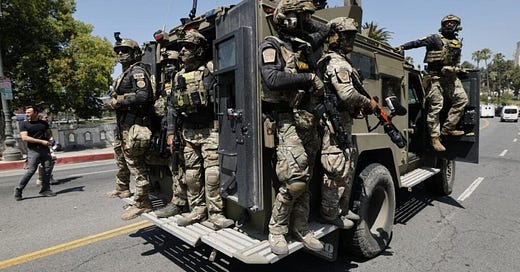



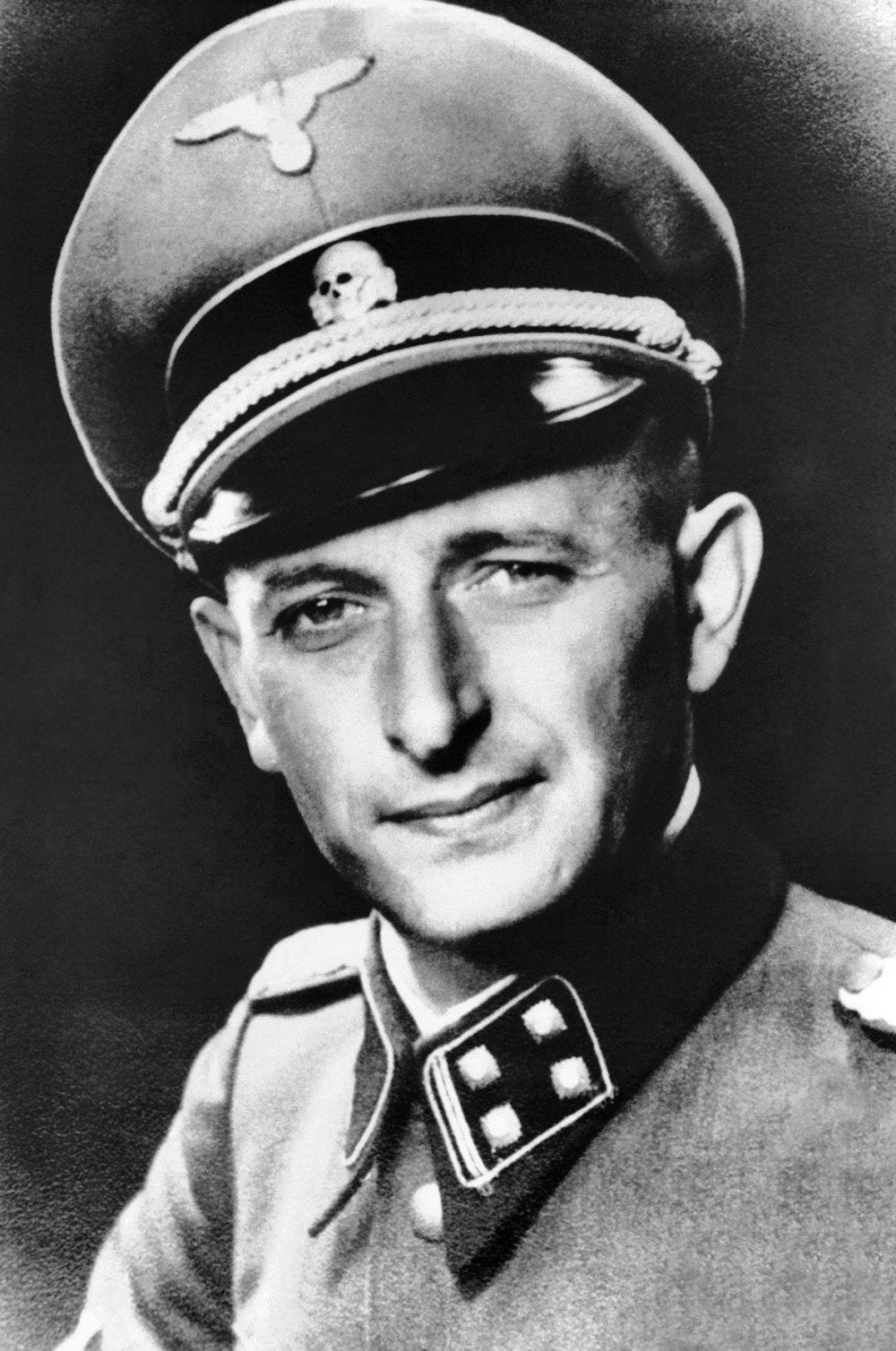
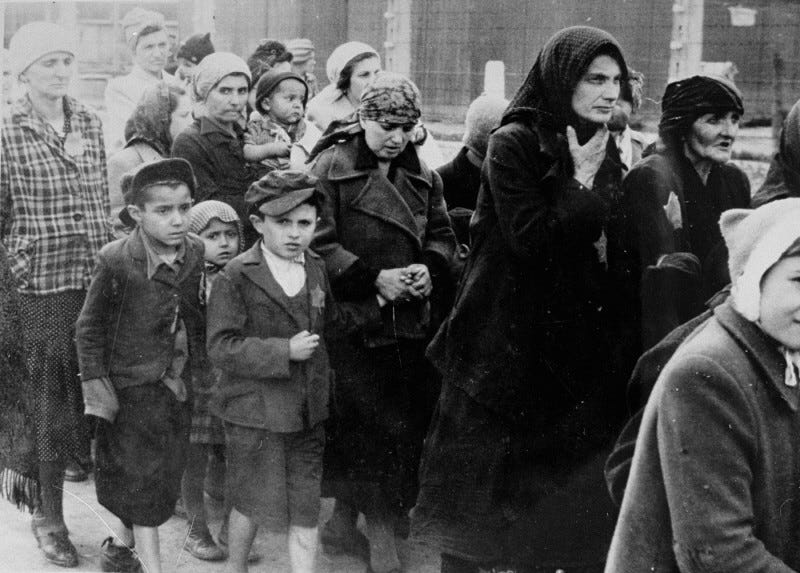
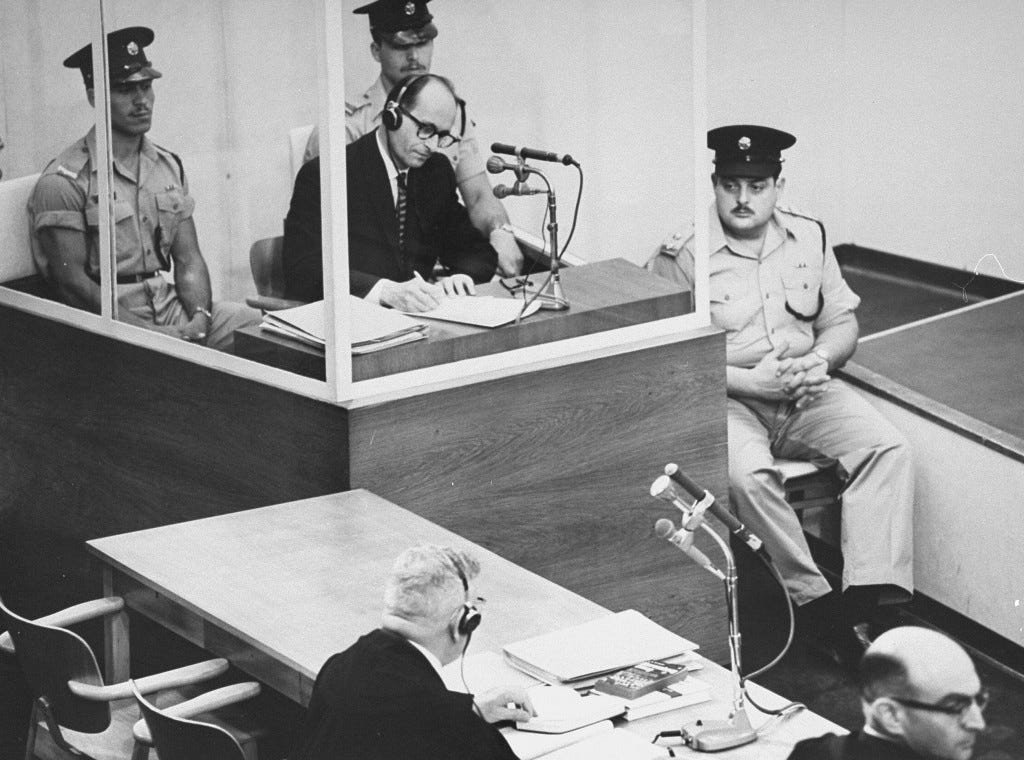
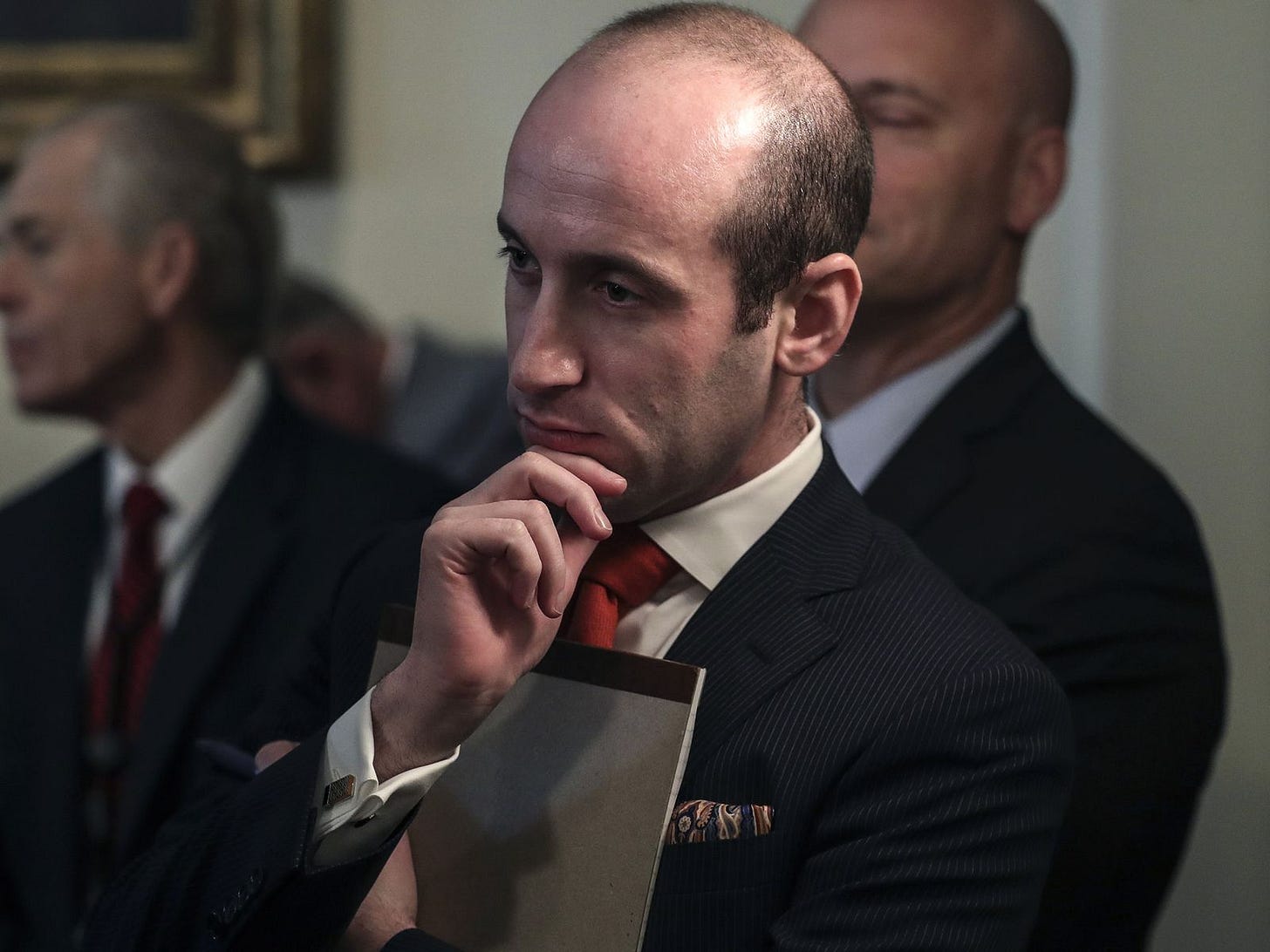

I pray we both are paranoid, Steve.
Alas I don't think we are.
The real problem is
no one can bear
to see this reality
Your persistence is greatly appreciated.